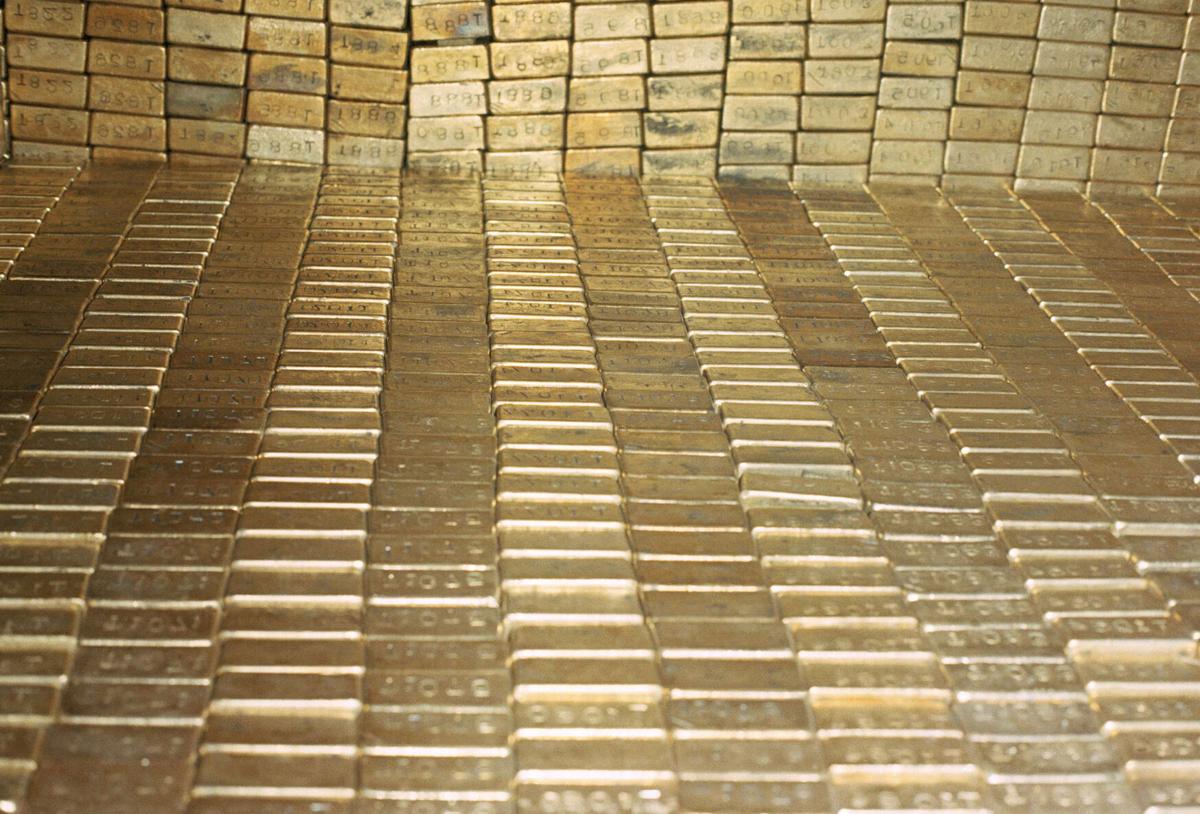PHOENIX — Arizona would create its own version of Fort Knox to store gold bullion and set up a state-run exchange where residents could buy, sell and store gold under a proposal being pushed by a state senator who leads the conservative Arizona Freedom Caucus.
Sen. Jake Hoffman's effort to launch a state-run bullion depository and exchange enabling people to use it to pay their bills comes down to what he said is distrust of government financial policy. He said it is designed to enable average people who aren't part of the "investor class'' to boost their wealth and protect their assets.
"The dollar is in grave danger due to failed federal monetary and fiscal policy,'' the Queen Creek Republican told members the Senate Finance and Commerce Committee this week. Allowing state-sponsored trading and storage of gold will help ordinary Arizonans hedge against a currency collapse, he said.
The measure was one of three Hoffman-sponsored bills that focused on currency concerns passed by the committee with only support from majority Republicans.
And the full Senate on Thursday approved a trio of measures along the same lines — one encouraging the state retirement system to consider investing in digital currency and two others that exempt digital currency from property taxes — even though they aren't real property subject to taxation. The digital currency property tax measure is contingent on voter approval.
Senate Minority Leader Mitzi Epstein laughed at all of them, and called the property tax proposal just one of the "bananas'' proposals. That may be a sign that Democratic Gov. Katie Hobbs, who set a veto record last year, may sniff at the proposals if they hit her desk.
Republican lawmakers have for years been echoing the far-right view that the nation's currency is set for collapse.
As early as 2013, measures aiming to appease those with similar views have been introduced in the Legislature, with items ranging from designating gold and silver as legal tender to exempting previous metals from capital gains taxes. This year's crop of GOP-backed measures embraces that same mantra.
Hoffman's bullion depository proposal, SB 1633, mirrors one set up in Texas in 2015.
It would serve not only as a place for the state to stash any gold reserves it may obtain but also as one where private citizens could safely store their own gold and silver. It would also act as an exchange where people could buy and sell physical gold, even in fractional shares, and use it to pay their debts.
Hoffman listed five main reasons why the state should open the depository and exchange. For one, he said the nation's debt path "is entirely unsustainable.''
He also said that other nations are targeting U.S. currency and attempting to devalue it, that inflation and an economic theory called the Cantillon effect, which says the investor class profits from inflation because they can take advantage of rising prices first, puts average wage-earners at a disadvantage.
And he said the fourth "undeniable truth'' is that governments around the world intend to weaponize currency, and that money is changing "whether we like it or not.''
"These five facts are true and anyone who says otherwise is a reality denier and captured by normalcy bias,'' Hoffman said. "The federal government is irresponsible and out of control so it is incumbent upon states to take every effort possible to protect our citizens''
He argued that the dollar is in grave danger due to federal fiscal policy,
"The most troubling part is that the overwhelming majority of Americans are unaware of the threat to their personal financial futures these failures impose,'' he said.
The argument isn't new. Former state Sen. Chester Crandell, who died in 2014, argued much the same the year before he died when he pushed a measure that would make gold and silver legal tender in Arizona.
The Texas bullion depository was created in 2015 when Gov. Greg Abbott signed a state law in creating it.
Built by a private company and completed in 2018 on a 10-acre site in a city just north of Austin, the facility was only 10% full last year, according to a story in the Houston Chronicle newspaper. And the private owner was trying to sell it, prompting the state Legislature to let the state comptroller borrow $20 million to buy it.
Competition with private depositories helped put the facility in tough financial straights.
Lawmakers in Florida, Oklahoma and North Carolina are now considering proposals to open state-run depositories.
Epstein, during Monday's committee hearing, said she was "fascinated by this and really amused,'' by Hoffman's proposal.
But mostly, she said, why would the state open a depository if anyone can buy gold and silver now and put it in a safe or a bank safety deposit box.
"Why do we need a government-sponsored place to store gold?'' the Tempe Democrat asked Hoffman.
He said storage isn't the main reason.
Instead, he pointed to the high cost of an ounce of gold and the ability to pay debts using it with the state's backing. An ounce of gold now hovers around $2,000.
"You can't purchase fractional shares of gold,'' Hoffman said.
"Whereas this would allow them to be at a fractional level and allow them to use for transactional purposes,'' he continued. "So as the dollar continues to be devalued, inflation continues to rise, the everyday Arizonans would have the ability to leverage what the wealthy already have.''
The bullion depository legislation awaits the vote of the full Senate.
Get your morning recap of today's local news and read the full stories here: tucne.ws/morning





